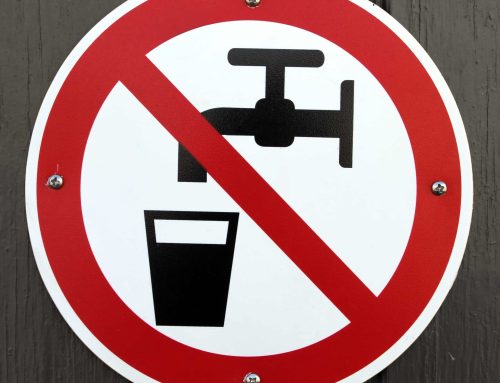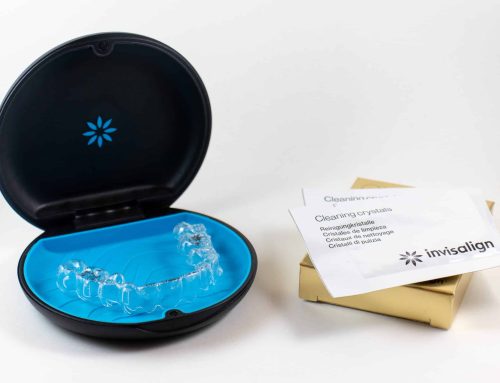Here’s an interesting fact: Apart from when you’re eating, your teeth should not be touching.
You’re thinking about it now, aren’t you? Your lips may be closed, but your teeth shouldn’t touch. If you find that your teeth are in fact touching, according to Dr. Jill Wade of Stonebriar Smile Design, you might be someone who grinds or clenches their teeth. This subconscious habit is likely a result of stress, which could stem from various parts of your life, including your relationships, your job, or something you may not even realize is causing you stress.
How Stress Affects Your Teeth
Whether it’s financial stress, relationship stress, or work stress, it affects your teeth, your jaw joints, your muscles—even creating headaches—and your overall health. The dentists at Stonebriar Smile Design pride themselves on knowing their patients, understanding their medical and family history, and even being aware of their jobs, all of which allows them to pinpoint variations in your dental and overall health and tailor specific treatment plans for each patient.
Everybody manifests stress differently, and while some people thrive in excessive busyness, others may not, and any disruption to their daily routine causes undue stress. No matter the stressors, whether conscious or unconscious, you (and your body) will find a way to relieve the stressful energy, which can result in temporomandibular disorder (TMD)—also called TMJ—from grinding and clenching your teeth during the night as you sleep.

There are obvious signs of stress-related grinding or clenching, and Dr. Wade, using a small, intraoral camera to take pictures of the teeth, can see the difference in the wear pattern between your upper and lower teeth. She likens it to a “puzzle piece,” explaining that grinding “actually changes the shape of the tooth until it makes a shape that’s not really the way the tooth is…deteriorating the teeth over time.”
According to the American Dental Association (ADA), post-COVID statistics showed a 71 percent increase for teeth grinding and clenching in the United States population, a 63 percent increase in chipped and cracked teeth, and a 62 percent increase in TMJ or TMD symptoms due to jaw joint pressure and clenching.
This equates to people literally putting enough pressure on their teeth to break them. Dr. Wade describes the mouth as “a hinge, and when it opens and closes, the most pressure that…you can apply is at the farthest point in the back [of the mouth].” If you consider how strong teeth are—after all, they are bone—that’s an enormous amount of pressure, and that additional pressure “was so high for so many people that it literally broke or split teeth.”
Stress, Sleep, and Solutions
When you’re not sleeping well or your sleep gets disrupted, it’s likely you’ll grind your teeth even more, whether you’re aware of it or not. It stands to question which caused which: has your teeth-grinding or troubled breathing caused you to lose quality sleep, or are you losing sleep because of your clenching or breathing, either of which would cause you to wake up tired and exhausted. This creates a cycle of unhealthy conditions.
There are easy and affordable solutions to these unconscious sleep habits.
- Retainers or Night Guards: Wearing one of these at night will protect your teeth and alleviate the headaches associated with clenching and grinding your teeth. While you may still clench or grind, the pressure won’t be as strong, disallowing you to clamp your teeth all the way down.
- Specifically for Gum Chewers: Because chewing gum mimics eating, also leading to the movement of teeth-grinding, it can have the same adverse effects. Try cutting back on how much, how often, and the length of time you chew gum. You can also try switching to “ICE” gum. Sweetened with xylitol, it only keeps its flavor for about five minutes, so once the flavor has diminished, toss the gum out.
- Botox and Neurotoxins: If injected into trigger points of the muscles of the jaw or neck, Botox really makes those muscle fibers relax, relieving the stress put on them by clenching.
Stress Less and Invest
Excessive stress activates your sympathetic nervous system, putting you in a near constant state of “fight or flight” mode. This is not a state of health. According to health and beauty expert Laura Lewis-Edwards, it affects your digestion, which stops; your blood sugar spikes, ready to give you fuel; and your cortisol levels increase, storing fat for energy use. This produces a somewhat toxic state for your body, leaving you to process these “toxins” at night, when you’re sleeping, which then diminishes your quality of sleep, and the cycle starts again.
Stress is such a huge, underlying, part of what Dr. Wade calls preventive medicine, trying to be healthier. Rather than focusing on the disease aspect of things, she prefers to focus on health and wellness and preventing disease. Finding an outlet for your stress is just as important as getting regular check-ups, whether that’s with your regular physician or your dentist, though it should be both. Invest in healthy habits and activities that allow you to relieve your stress; devices and care to protect your teeth; and do it in a way that’s beneficial to your body and your mind.

Dr. Wade even suggests, for some of her intensely athletic patients, wearing a night guard or retainer during workouts as some have a tendency to unconsciously clench or slam their teeth together when exerting tremendous effort. This is especially important if you also have the tendency to clench and grind during your sleep because it adds to the total amount of time you spend putting stress and force on your jaw and teeth.
Investing in your teeth means investing in your health, and the benefits will far outweigh the costs.
Click here to watch this episode of the Beyond Face Value Show on YouTube with co-host Laura Lewis-Edwards.
Visit us on YouTube to hear more about Stonebriar Smile Design and wellness dentistry, and be sure to comment, like, and subscribe.




